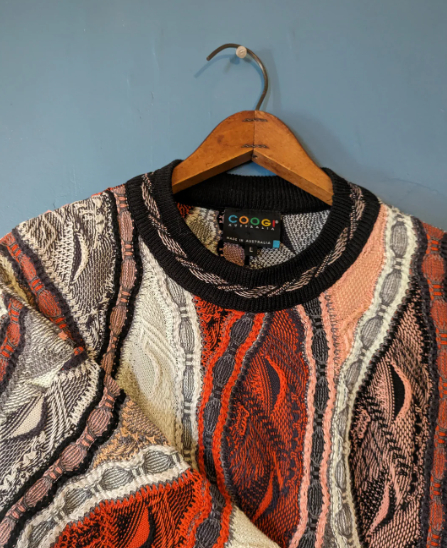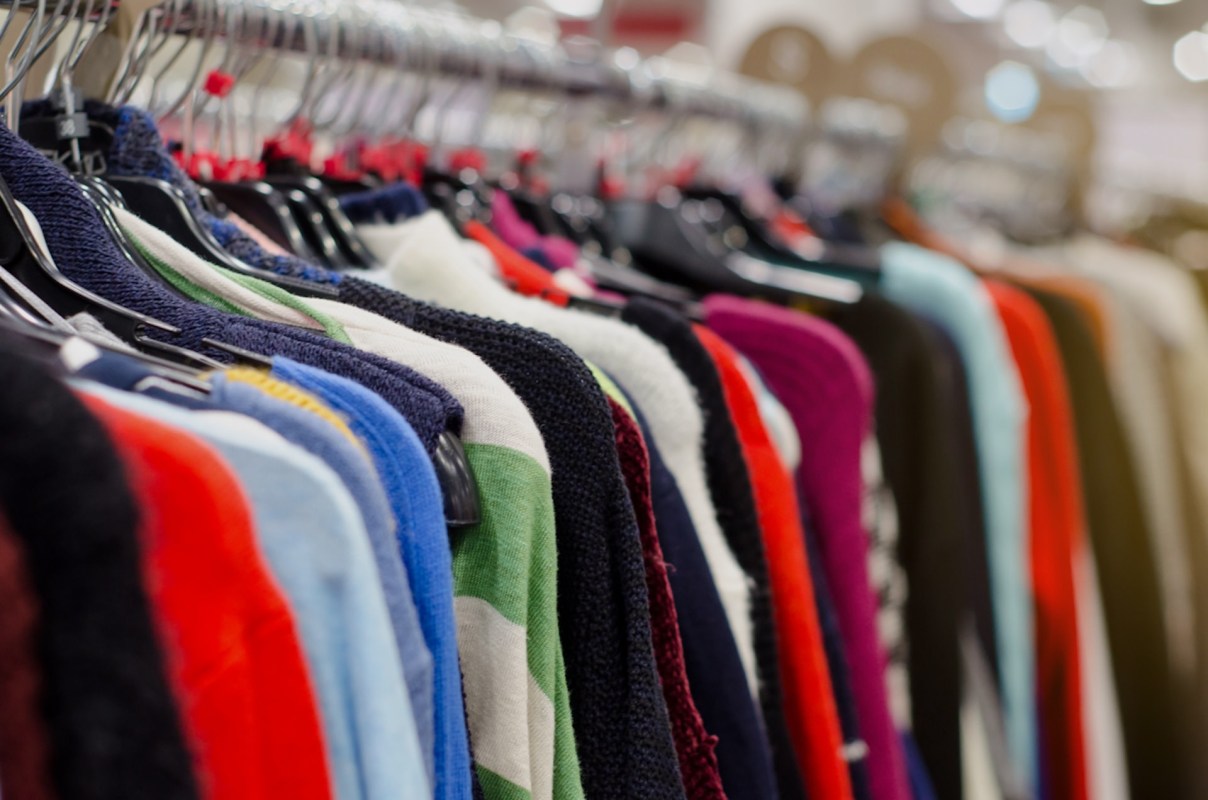For most of us, a $600 sweater is out of reach, even if it's the most gorgeous garment you've ever laid eyes on.
That's the problem with Coogi sweaters; they seduce you with their vibrant colors and intricate patterns that echo the undulating landscapes and Aboriginal artwork of Australia.
But in a recent post in the r/ThriftStoreHauls subreddit, one Redditor shared their remarkable find of a vintage Coogi sweater for under $10 in a thrift store.

They said: "Seriously, I did a triple take in the store!! I've thrifted Coogi lookalikes before but never the real thing. Mind blown! Major dopamine high."
And the thing is, their experience isn't unique. Another Redditor posted in the comments: "Beautiful! I have a very similar one but in blue that I found at a value village years ago."
Shopping for clothes in thrift stores is a hunt for treasures among the tremendous variety of brands and styles on the racks. If you look systematically, you're bound to come across a garment that you're excited to wear.
Purchasing secondhand clothing is also the most economical way to refresh your wardrobe, saving an average shopper about two-thirds of the cost of new clothes.
Aside from the adrenaline of the hunt and the ultimate cost savings, there are deeper reasons to choose secondhand goods over new ones: waste and carbon.
The fashion and footwear industries generate 8% of global carbon pollution, according to data from a Quantis report relayed by Commons. Manufacturing a new T-shirt generates "~11-13 pounds of carbon dioxide equivalent," similar to the carbon impact of a big burger, according to Commons.
And given that, on average, Americans throw away 81 pounds of clothing per person annually, donating clothes to thrift stores would keep about 27 billion pounds of clothing out of the waste stream.
Yet according to Gitnux, recent statistics show that only 16-18% of Americans shop at thrift stores.
If you need inspiration to make your shopping trips more sustainable, see more spectacular thrift finds here, from luxury suitcases (donated by Perez Hilton's mom) to high-end kitchen appliances that work.
As the OP noted on Reddit, it's becoming increasingly harder to find gems like the Coogi sweater at thrift stores as fast fashion has grown: "Definitely a needle in a haystack at the thrift store these days filled with crappy Shein clothing!"
Another commentor said that "stuff like this keeps me going to the thrift! i pray one day the thrift gods will choose me to be this lucky."
By bypassing new manufacturing, thrifting saves us money while reducing our footprint on Earth.
Join our free newsletter for easy tips to save more, waste less, and help yourself while helping the planet.









